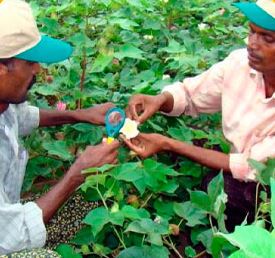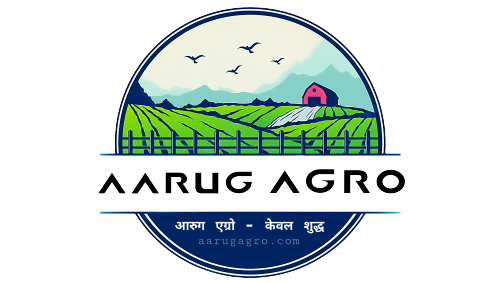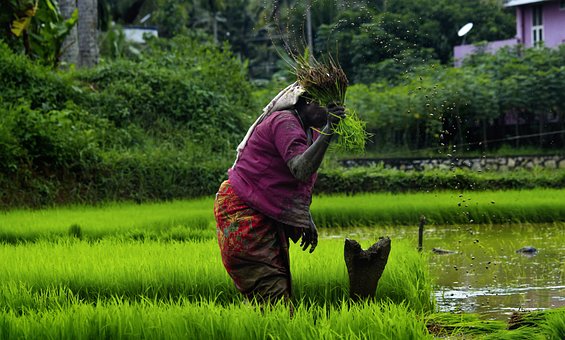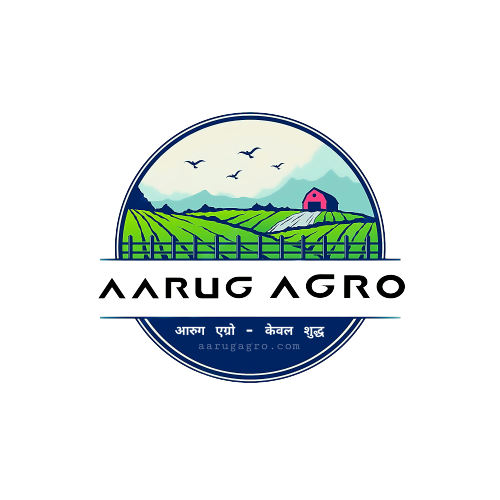Sustainable Farming : Hello farmers, We hope you are doing well with your farm or farming. Your dedication to feeding the whole country makes you a true patriot. We can only imagine how many difficulties you face for us, how many catastrophes you face. It was a head-on confrontation for you. Your harvest and food always provide us with a good harvest. You have sacrificed and obligated yourself for our benefit.
As time goes on, our country proves day by day that a good food system is needed or that it needs to be converted into one. The food system in our country has many shortcomings that farmers face. As a result, Sustainable Farming should be implemented in India.
Farmers and people in India have difficulty understanding sustainable farming. The majority of farmers in India don’t know anything about sustainable agriculture. My opinion is that every farmer in India should be aware of sustainable farming in India, how it benefits them, and why they should consider it. The purpose of this blog is to share information with you about sustainable agriculture. Stay tuned with us and find out everything you need to know about sustainable agriculture.
What is Sustainable Agriculture?

In the last few years, sustainability has become very popular, and now it is used to describe a range of items. Sustainable agriculture – what is it and how is it practiced in India? An agricultural practice that uses sustainable methods to produce plant and animal products, including food, to protect the environment as well as public health, communities, and animals.
Agriculture in India that is sustainable allows us to produce healthy foods and textiles without compromising the ability of future generations to do the same. In order to practice sustainable farming in India, you must find the right balance between the need for food production and the protection of ecosystems.
In addition to improving farmers’ quality of life, sustainable agriculture increases economic stability for farms. Approximately 40% of the world’s population is employed in agriculture, which remains the most prominent organization.
Types Of Sustainable Agriculture
Sustainable agriculture is defined in the discussion. There are two types of definitions: ecocentric and technocentric.
| Ecocentric | Technocentric |
| An ecocentric view holds that Earth’s environment, including its atmosphere, water, land, and all life forms, has inherent value. It means they should be protected and considered if humans can’t use them as resources.
Human development is sustainable if life on the Planet is not endangered by drowning. Based on the ecocentric approach, we can claim that a certain human activity, such as fishing, is sustainable if it allows for the reproduction of the species fished on an unchanged scale. |
Technocentric is a value system centred on technology and its ability to control and protect the environment. Instead, environmental problems are seen as problems to be solved using logical, scientific and technological means. Scientists believe in analytical technocentric research. |
Sustainable Agricultural Practice In India

Farmers can make more profit by using sustainable farming practices, which improve agricultural production and efficiency.
Experience and practices show that sustainable farming in India increases productivity and reduces environmental damage. Agricultural practitioners who practice sustainable agriculture strive to combine environmental, economic, and social pillars.
A number of sustainable farming practices have been developed over many years of scientific research and practice. Several examples of sustainable farming can be found in India, such as using a polyethylene mulch fabric that is biodegradable.
- Planting crops and embracing diversity.
- Reducing tillage.
- Applying integrated pest management (IPM).
- Combining livestock and crops.
- Using agroforestry practices.
Self Sustainable Farming In India
Are you interested in starting a self-sustaining farm in India? How can you make self-sustaining farming in India?
Features of the farm: They should decide the location of farmlands (near a city, near main highways, near a market, away from forest borders where wild animals can destroy the crops, etc.), the size of the farm, availability of sufficient water (rivers, ponds, bore wells) for different agriculture activities, availability and wages of labour for farm work, nearness to social and local markets, availability of power supply, and availability of organic manures and fertilizers for organic farming, if needed, are all factors that define how one can make a self-sustainable and productive, and successful.
Infrastructure: To succeed, you’ll need sufficient farm infrastructure: a processing and storage facility for produce, a tractor shelter, shelters for farm animals, transportation, repair and maintenance services, and even a nursery.
Types and choices of farming activities that can take up:
The mass production of grains (corn, wheat, rice, legumes and oilseeds)
Specialized crops (flowers, fruits, etc.) that can be efficiently and profitably sold.
Various animal farming systems: Farm animals (dairy cattle, goats, chicken, rabbits, etc.), most effective.
Fish farming in farm ponds: Farm ponds are used to harvest rainwater during the monsoon season, and the water is used for cropping, growing farm animals, and increasing fish, ducks, etc.
Vertical farming in nurseries is under a controlled atmosphere. Year-round production is possible here.
Sustainable Agriculture Companies In India
The following are the top 10 sustainable agriculture companies in India. Sustainable farming practices and sustained use of its products are important to this company.
S.No. Companies Description 1 BASF Founded in 1865, Germany. They were engaged in such a program called ‘Samruddhi’, ‘Suraksha Hamesha’ and offered a ‘Sanrakshan® Kit’ to farmers. 2 Good Eggs Founded in 2011, USA. 3 Aero Farm Systems Founded in 2004, USA. They grow delicious, nutritious green leafy herbs without sunlight, soil, or pesticides. 4 Plenty Founded in 2013, USA. They are on a mission to bring fresh, local produce to cities everywhere in a way that’s better for the environment. 5 Atos Founded in 1997, France. It is a leader in digital services with a pro forma yearly income of circa EUR 12 billion and 100,000 employees in 72 countries. 6 Impossible Founded in 2011, USA. Impossible makes delicious, nutritious food, meat and dairy products directly from plants. 7 Ecovative Design Founded in 2007, USA. It is a leading biomaterials company growing high performance, award-winning products that are secure, healthy, and certified sustainable. 8 LanzaTech Founded in 2005, USA. It converts carbon monoxide gases produced by industries, steel manufacturing, oil refining and chemical production, and gases caused by gasification of forestry and agricultural residues. 9 Bolt Threads Founded in 2009, USA. The study of silk proteins found in nature to determine what gives them their unbelievable properties. They produce proteins inspired by these natural silks by planting genes into yeast. 10 Memphis Meats Founded in 2015, USA. Memphis Meats creating a new sort of farming to modify the way meat is made. We love meat, we know that there are significant problems with modern animal agriculture. Policies For Sustainable Agriculture In India

Policies For Sustainable Agriculture In India India’s National Agricultural Policy (NAP) has emphasised the importance of management and conservation of resources by declaring that ‘the policy will seek to promote technology, economically viable, environmentally non-degrading, and socially. It is acceptable by the country’s natural resources land, water and genetic ability to promote sustainable farming agriculture in India.
Is Organic Farming Sustainable In India?
Organic farming in India is a question that every farmer asks. A comparison is also being made between sustainable development and organic farming in India.
Farmers in India can easily start organic farming because it is sustainable. It is important for them to understand the difference between organic and sustainable farming. In India, the difference between organic farming and sustainable development is not that great.
Sustainable development is defined as economic growth conducted without the reduction of natural resources.
Sustainable development is almost synonymous with organic farming. We are restoring the balance of the environment through organic farming.
Here is a very basic approach to organic farming for the sustainable environment, which includes:
- Improvement and preservation of the natural landscape and agro-ecosystem.
- Avoidance of overexploitation of natural resources.
- Less consumption of non-renewable energy resources.
- Maintenance and increase soil health by soil organic manures and avoid hurting them with pesticides.
- Optimum economic returns, with a safe and healthy working environment.
- Recognition of the features of natural know-how and traditional farming system.
Sustainable Organic Farming In India
Compared to conventional farming, organic farming has a greater impact on a nation’s economy and the environment. Agricultural growth in organic agriculture is a natural skill in India.
Several factors contributed to India’s slow adoption of organic farming. One of the most prominent organic farmers in the world, it has achieved fast development in organic agriculture. Indian farmers benefit from organic farming by securing sustainable development and ensuring a sustainable farming industry.
The practice of this type of farming relies more on sustainable farming practices to grow crops, and it avoids using chemicals that are not part of the natural ecosystem. Agriculture that is organic can provide meaningful socioeconomic and ecological development in developing countries. The use of local resources, natural seed varieties, manure, etc., and cost-effectiveness, are outstanding applications of organic principles.
Importance Of Organic Farming In India
Among the many benefits of organic farming is that it preserves the organic composition of the soil. Organic farming mostly avoids the continuous removal of Ozone due to pesticides, industrial leakage, and more.
- They support and improve soil fertility and structure, biodiversity. They do this by making their organic fertilizer from dead plants and other organic waste.
- Organic farming reduce the risk of human, animal and environmental exposure to toxic effects through pesticides, fertilizers and other chemicals.
- They modify their farming ways to meet local conditions and market demands.
Sustainable Agriculture Notes
The principles of sustainable agriculture include organic fertilizer, soil and water storage, natural pest management, and the use of minimal nonrenewable energy. This is a way to emphasize the ability of a farm to continue producing without relying on outside data.
According to the world
There is a rapid growth in Earth’s population, and that growth requires more resources.
According to the United Nations, there will be nine billion people in the world by 2050, which will require an increase in food production of 70% to feed a booming population. Today, one billion plus people are dependent on agriculture. It is essential to produce food for humans, but the expanding population of the planet is posing a growing concern about our ability to produce that much food with limited natural resources. As a result of this concern, food waste in the United States is a major issue, with 30 to 40 percent of food going to waste from farm to plate. Agricultural production must change due to these unsustainable practices.
According to the Indian State
The state of Andhra Pradesh currently uses some kind of non-pesticide management in 13 districts. By 2027, Andhra Pradesh plans to become India’s first 100% “zero budget natural farming” state, requiring approximately 6 million fields over 8 million hectares of land to be converted for sustainable farming.
The following is a complete guide to sustainable farming in India. This blog is meant to be informative and we hope you enjoy it. Keep up with Aarug Agro for more updates and new information on sustainable farming in India or organic farming in India.


